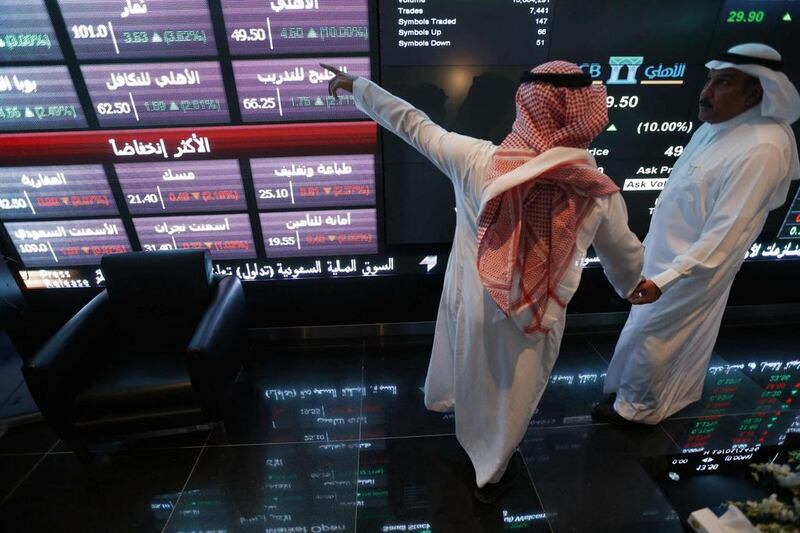Saudi Arabia was excluded from FTSE Russell Emerging Markets Index in its annual review of country classification released on Friday, leaving the kingdom waiting a little longer to benefit from an estimated US$4.4 billion of passive flows. Meanwhile, Kuwait was included in the closely-tracked index.
Saudi Arabia is expected to meet requirements for inclusion as a secondary emerging market early next year, when its stock exchange introduces enhancements to its independent custody model, further securing trade settlements, FTSE Russell said."I think it is not a great surprise. Most market observers were expecting that it might be a little too soon," said Tarek Fadlallah, the chief executive at Nomura Asset Management Middle East.
_______________________
Read more:
[ Saudi stocks fall on FTSE non-inclusion fears ]
_______________________
He also noted the Saudi Capital Market Authority has been fairly proactive in introducing market reforms geared towards inclusion in both MSCI and FTSE Russell's emerging market indexes.
Mr Fadlalla said "there is a realistic prospect" for Saudi Arabia to succeed next year.
Market regulators and stock exchanges in both Saudi Arabia and Kuwait have made structural changes to facilitate trading and attract investments in the past two years.
The kingdom's index Tadawul, which has a total market capitalisation of $458bn, relaxed rules for foreign investor participation and introduced changes to settlement procedures.
Saudi Arabia, which will be assessed again in March, has made very significant progress and the policy changes necessary for promotion have been put in place, according to Mark Makepeace, the chief executive of FTSE Russell.
"They definitely have made some progress but to compare them with regional and global markets, Saudi still has some restrictions on foreign ownership, so I understand the move by FTSE for not including them," said Nabil Al Rantisi, the managing director of brokerage at Menacorp.
“There is still more work to be done and then they will get there.”
The kingdom, which is trying to cut its dependence on oil, plans to sell less than a 5 per cent stake in Saudi Aramco, the world's biggest oil producer, in an initial public offering (IPO) next year as part of its economic reform agenda.
The company will be first listed on Tadawul, and then on a yet to be determined international exchange, which could possibly be the biggest-ever IPO globally.
The change to emerging market status for Saudi Arabia could trigger a surge in passive inflows from funds tracking the index.
Inclusion of the kingdom in FTSE Russell's emerging market index could lead to $4.4bn in flows to the Tadawul, assuming it would represent 2.7 per cent of the index, according to a Bloomberg report citing Mohamad Al Hajj, an equities strategist at
EFG-Hermes.
Considering Saudi Aramco's IPO, the country's weight in the index could reach up to about 5 per cent over time, Bassel Khatoun, the chief investment officer of Mena equities at Franklin Templeton Investments told Bloomberg.
Kuwait's addition to the FTSE emerging markets list may attract flows of $822 million as the country is expected to represent 0.5 per cent of the benchmark, Mr Al Hajj said.
Mr Khatoun, who also predicted a 0.5 per cent index weighting, estimated flows of about $600m.







